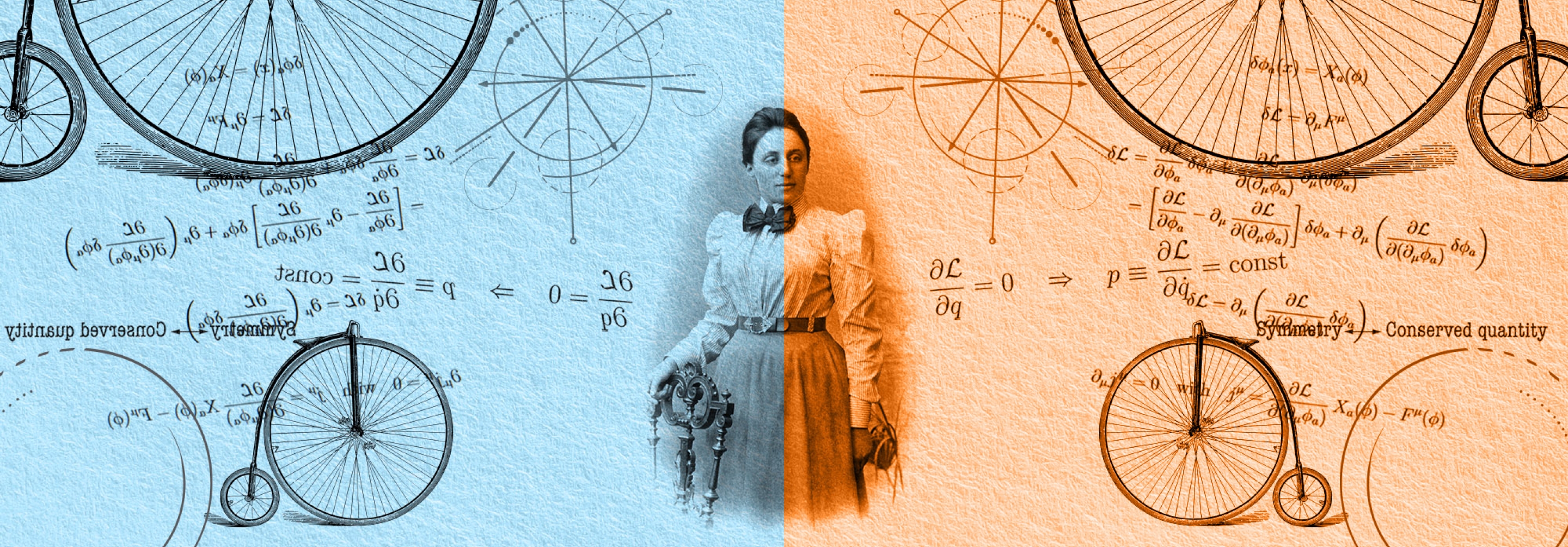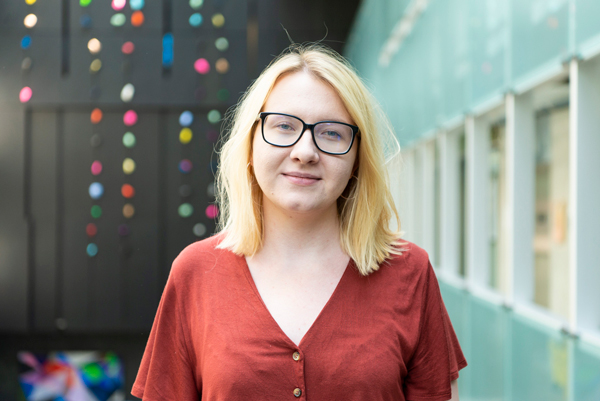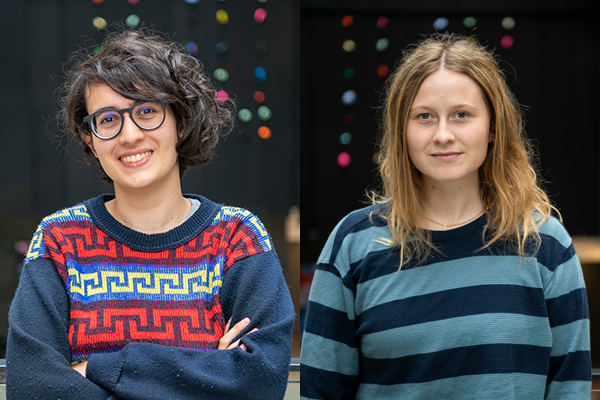Turning students into scientists with the Emmy Noether Emerging Talent Fund
Graduate school is a critical time for any young researcher, marking the transition period from dedicated student to independent scientist. For women in physics, it can be an especially pivotal time, when some choose to leave the field altogether.
Perimeter developed the Emmy Noether Emerging Talent Fund (EN-ETF) to support bright women during their PhD studies.
Named for the influential German mathematician, the EN-ETF is part of a broader suite of Emmy Noether initiatives at Perimeter aimed at effecting positive change for girls and women within theoretical physics.
Emmy Noether was a trailblazer. Unable to enroll in university because she was a woman, Noether attended classes anyway and ultimately earned her PhD in 1907. Her foundational work in abstract algebra led her to develop Noether’s theorem – a breakthrough used in every branch of physics today.
All PhD students at Perimeter are financially supported for the duration of their studies. Some exceptional women PhD candidates are additionally awarded an EN-ETF scholarship, which reduces teaching assistant duties, freeing extra time for research.
The Emmy Noether Council: Fuelling the talent pipeline
The Emmy Noether Council is a group of individuals working with Perimeter to support women in physics. The EN-ETF was launched in 2019 with an inaugural gift from Council member Anne-Marie Canning, a passionate advocate for women in science. Her gift supported students Barbara Soda and Amalia Madden.
Today, Council volunteers are working to drive the philanthropic support from STEM diversity and equity champions. The Council has set an ambitious $2.5 million fundraising goal to support 10 PhD students at any given time.
“Now, more than ever, we must harness all the brightest minds in science. This is how paths to a better world will be forged. Their future is our future,” says Canning.
Meet Kasia Budzik, the 2021 EN-ETF recipient
As a child, Kasia Budzik was fortunate to have a teacher who fostered her natural strengths in math and science, providing additional classes to prepare Budzik for participation in Mathematical Olympiad competitions. That teacher shaped her career and life path.
As a teenager, Stephen Hawking’s book A Brief History of Time: From the Big Bang to Black Holes sparked Budzik’s interest in big scientific questions. How did the universe start? How will it end? And how can we describe what happens in between?
Theoretical physics could help answer those questions, Budzik learned. She took every opportunity she could to dive deeply into the topic. In the summer of 2014, she attended Perimeter’s International Summer School for Young Physicists (ISSYP), flying from her hometown of Krakow, Poland, to Waterloo, Canada, for an intensive two-week immersion in physics and activities with like-minded peers from Canada and around the world.
The experience confirmed Budzik’s interest in and aptitude for physics. Following her undergraduate studies at the University of Warsaw, she secured a coveted spot in the Perimeter Scholars International (PSI) master’s program.
Budzik stayed on for her PhD studies, working under the supervision of Davide Gaiotto, the Krembil Galileo Galilei Chair in Theoretical Physics.
Now in her third PhD year, Budzik’s research focuses on twisted holography.
In physics, holography is a powerful tool or a bridge linking pairs of theories in areas that appear to be completely unrelated. This bridge can be used to translate complex or intractable problems in one area of physics into manageable problems in another.
In the context of twisted holography, “twisting” means restricting to a subsector of the duality – akin to taking a magnifying glass to a specified spot on a page. With this approach, physicists can define things more mathematically, subsector by subsector, and ultimately attempt to prove the duality more rigorously.
Research carried on during the pandemic lockdowns, with a different tone and pace. Budzik found a new way to relax while keeping her mind engaged: she taught herself chess (with a little help from the Internet). Now that life has resumed more normalcy, Budzik is pleased to be back doing physics in-person.
“I really like being at Perimeter, ever since my time as an ISSYP student,” Budzik says. “I like what I’m working on, and I’m making the most of being here in the building daily. I am very happy to be back and immersed in all that Perimeter has to offer – attending seminars and collaborating with fellow students in person – it’s the best way to do physics.”
Announcing the 2022 EN-ETF recipients
Perimeter is delighted to introduce the 2022 EN-ETF award recipients: Marina Maciel Ansanelli from Brazil and Taillte May from Ireland.
After completing the PSI master’s program virtually at the height of the COVID-19 pandemic from their respective home countries, both Ansanelli and May chose to continue their academic careers at Perimeter. Now, both are studying in person and thriving in Perimeter’s collegial, cooperative culture.
Ansanelli’s studies are in quantum foundations, an area of research she first came across as an undergraduate student while at Perimeter for a two-week program in the summer of 2019.
May chose Perimeter for her PhD in large part because of its welcoming and collaborative environment. Her studies are in strong gravity.
At the edge of breakthroughs
With the continued vision and steadfast support of the Emmy Noether Council, the talent pipeline of the future includes and represents women.
Their efforts are timely: Physics has entered an extraordinarily exciting and promising era. The growing group of brilliant EN-ETF awardees may well unravel some of the grandest mysteries of the universe.


